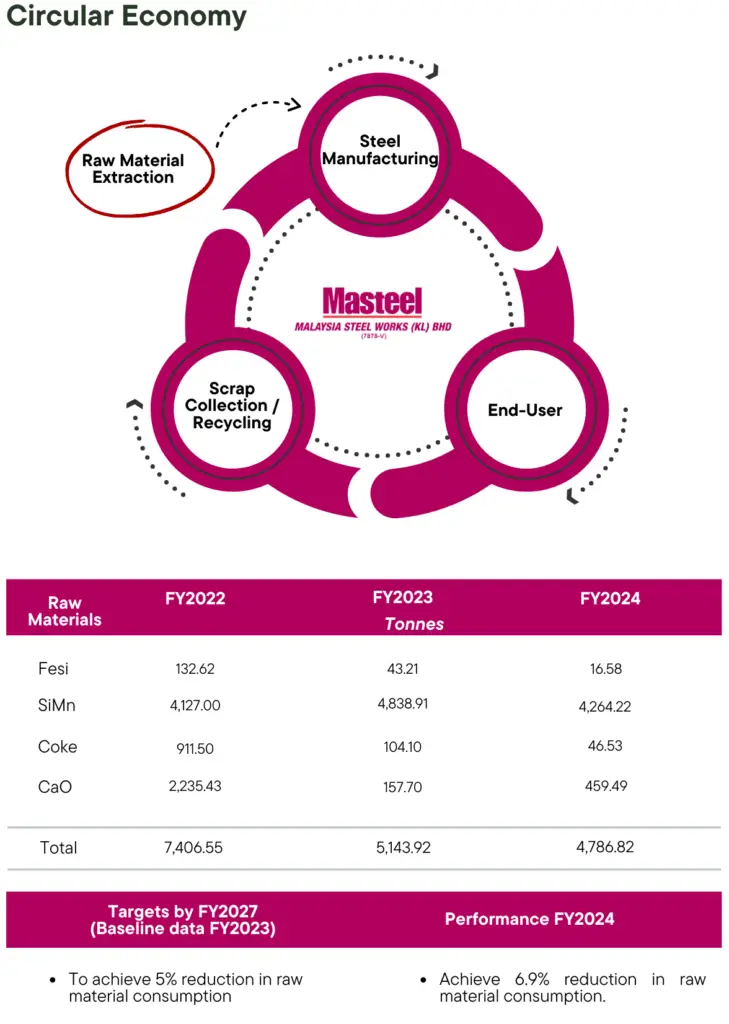ENVIRONMENTAL
Circular Economy
Steel is the world’s most recycled material, embodying the core principles of a circular economy through our ability to be infinitely recycled without comprise in quality. We actively embrace this sustainability model by incorporating a significant amount of recycled steel scrap into our steelmaking processes. This practice aligns with our broader objective of reducing raw material dependence, conserving natural resources, and minimising industrial waste. This reinforcing our commitment to a more sustainable steel player locally and abroad.
As part of our zero waste strategy, we are dedicated to recycling and reusing co- products generated during our manufacturing operations. Our approach includes recovering and repurposing by-products such as steel slag and mill scale ensuring that valuable materials are reintegrated into the production cycle rather than disposed of as waste. This initiative not only enhances resource efficiency but also reduces our environmental footprint, demonstrating how circular economy principles can be successfully embedded within industrial operations.
Furthermore, our efforts extend beyond internal recycling. Masteel actively collaborates with stakeholders, including suppliers and customers, to promote responsible material usage, end-of-life product recycling, and sustainable supply chain practices. By advocating for a closed-loop steel production system, we support industry-wide transitions towards low-carbon, energy-efficient manufacturing methods that align with global sustainability goals.
Through these initiatives, We are positioning ourselves as a leader in environmental stewardship within the steel sector through these initiatives by integrating circular economy principles. This includes the reducing material use, reusing co-products, and recycling steel efficiently where we contribute to a more sustainable and resource- efficient economy. This forward thinking approach not only ensures the preservation of finite resources but also supports Malaysia’s and the global industry’s transition toward a low-carbon, sustainable future.

